 Michael Oram of the Channel Swimming & Piloting Federation provided his unique and first-hand insight on the reasons why the Great Channel Swim was recently cancelled in reply to questions on an English Channel swimmers chat site.
Michael Oram of the Channel Swimming & Piloting Federation provided his unique and first-hand insight on the reasons why the Great Channel Swim was recently cancelled in reply to questions on an English Channel swimmers chat site. Michael has been working diligently with Colin Hill of Nova International since November 2008 to organize the Great Channel Swim.
 Michael and Colin have attended numerous meetings, written comprehensive risk assessments based on Michael’s experience of personally piloting over 500 English Channel attempts over 27 years, and spent countless hours consulting with the Coastguard authorities, various County and local Councils, police groups, the Dover Harbour Board and local officials to organize the Great Channel Swim.
Michael and Colin have attended numerous meetings, written comprehensive risk assessments based on Michael’s experience of personally piloting over 500 English Channel attempts over 27 years, and spent countless hours consulting with the Coastguard authorities, various County and local Councils, police groups, the Dover Harbour Board and local officials to organize the Great Channel Swim.Groundwork and the planning with the authorities started in November 2008 and, based on a consensus developed by the end of January 2009, the Great Channel Swim was announced officially by Nova International at the beginning of February 2009.
However as the media interest started to build up momentum and additional groups were briefed on the event, the issue of having unknown numbers of spectators in leisure vessels in the English Channel was brought to the attention of the French authorities. Faced with the possibility of safety issues related to hundreds of spectators in a wide variety of boats watching the athletes – going at a relatively slow 2 knots per hour across heavily trafficked international shipping lines – the French authorities reassessed the situation and informed Nova of their new concerns at the logistics meeting on the March 31st.
Largely because of the unknown element of these spectators' effects on safety, the French cooperation and consent was then formally withdrawn on the April 29th.
Throughout April, Michael and Nova tried gallantly to salvage the situation, presenting various alternatives. Because no one could accurately predict how many spectator boats would be on the water on race day, or how they could be controlled, it was impossible to come to an agreement with the French authorities because there was no way to verify the parameters involved.
With a May 1st deadline looming, the athletes were alerted to the situation and negotiations continued.
Unfortunately, by May 1st, the concerns had still not been resolved and, as a result, the French authorities did not change their assessment.
As Michael explained, "It would have been a great event if it had come to fruition. It might well happen in the future now that the parameters are set, but it will take time and effort to negotiate."
Like marathon swimmers throughout the world, we understand the risks involved, know many obstacles stand in the way of success and greatly appreciate the support we receive from those who organize and govern the sport.
We wish Michael and Colin the best of success in the future.










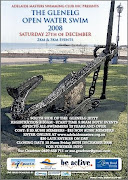





No comments:
Post a Comment